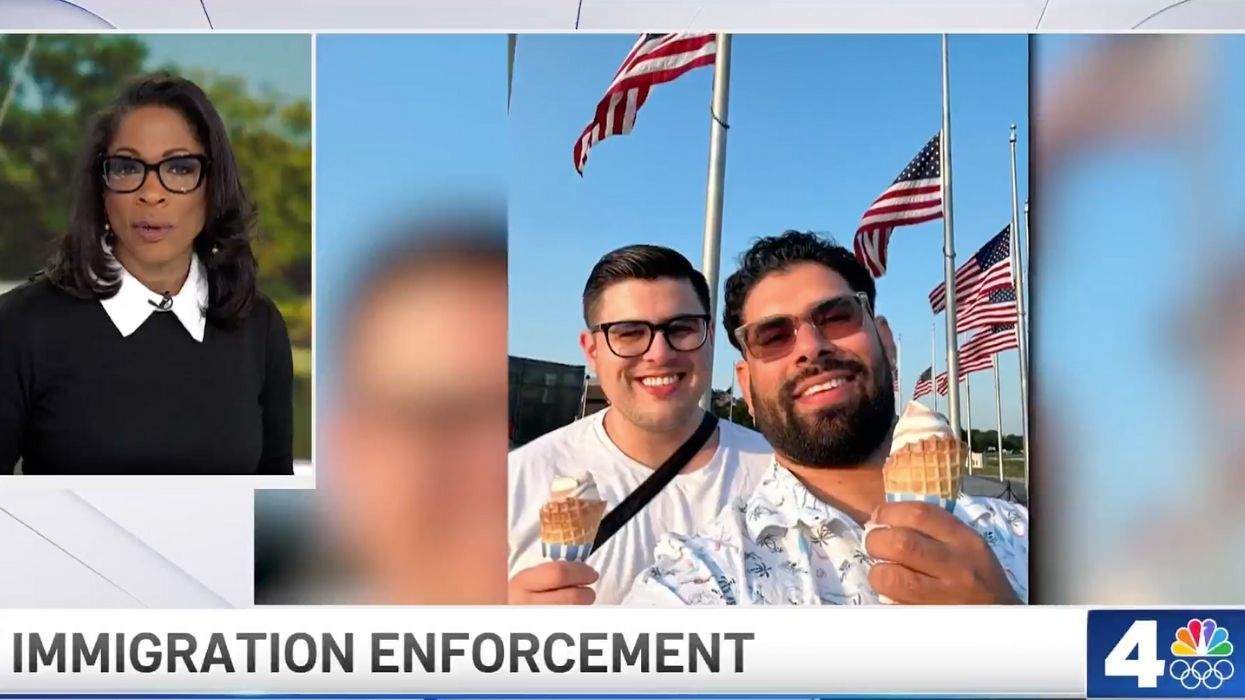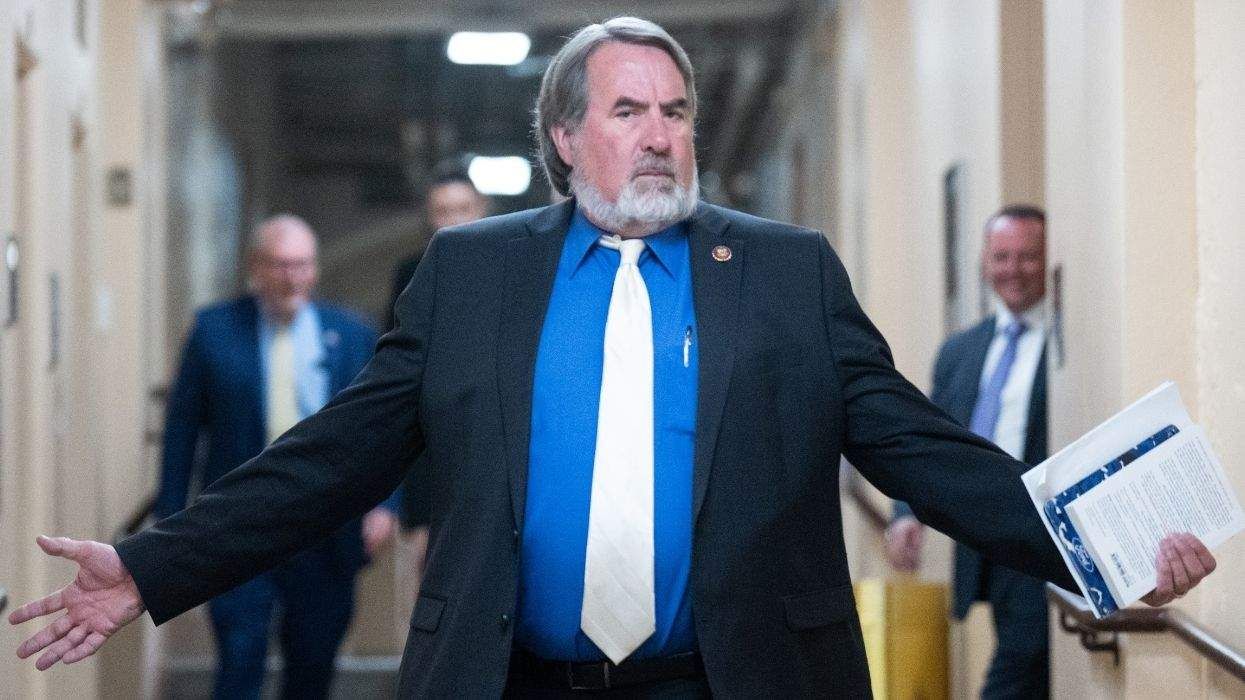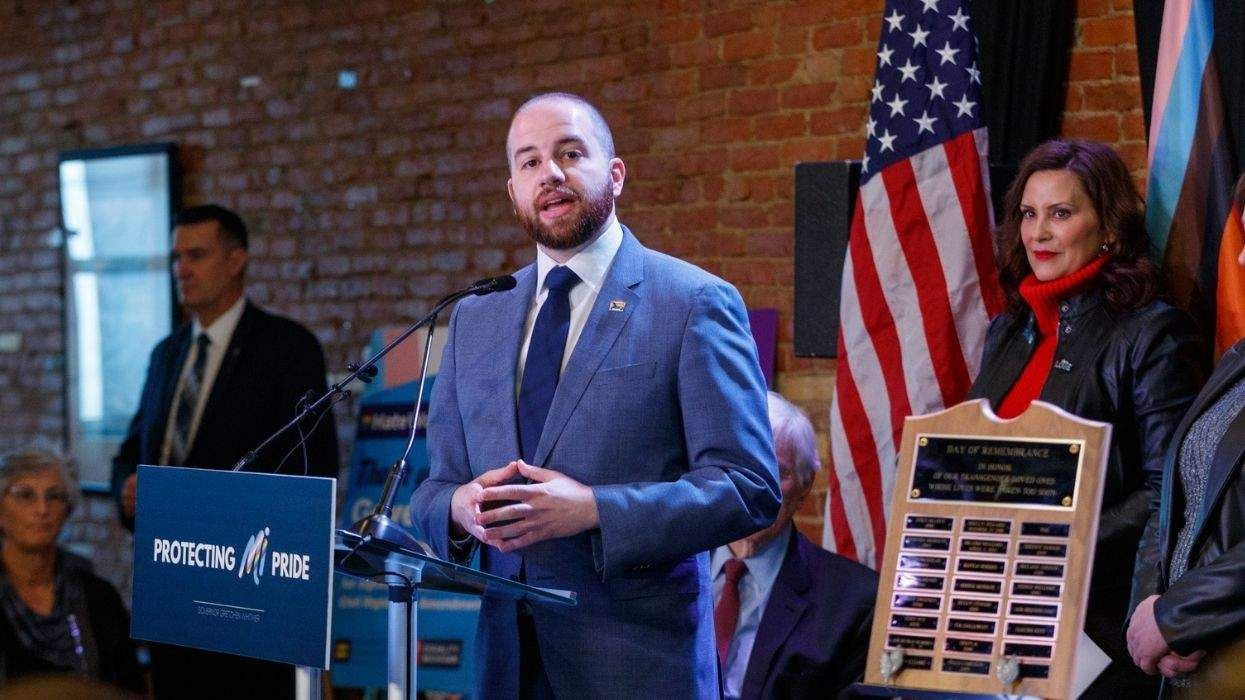In conflicting new briefs, Arkansas officials have adopted opposite stances on whether the state's marriage ban should be overturned.
On one side: top state officials, who argue that the ban is constitutional, and should not have been overturned by a lower federal court. One the other: Pulaski County Clerk Larry Crane, one of the government officials being sued.
Crane has broken rank with his colleagues to argue that the ban "targets a minority to strip them of rights," and was correctly overturned. It's quite rare for an official to appeal a decision while also agreeing with their opponents.
But on the same day that Crane filed his latest brief, state officials filed a brief of their own. They argue that the marriage ban cannot violate the Arkansas Constitution, because "where there is an inconsistency between an earlier provision of the Arkansas Constitution and a later amendment, the amendment, being the more recent expression of the will of the people, prevails."
For his part, Crane argues that the ban violates constitutional rights that cannot be superseded by any amendment.
The state's brief disagees, claiming that the ban also does not violate the U.S. Constitution, citing the 1878 case Pennoyer v. Neff in which the Supreme Court recognized the authority of states to regulate marriage. However, in the the far more recent 1977 case Moore v. East Cleveland, the Court ruled that "when the government intrudes on choices concerning family living arrangements," it must show a valid justification for doing so, lest it violate the Due Process Clause. Notably, most recent court decisions overturning statewide bans on same-sex marriage have concluded that such bans violate the Due Process and Equal Protection clauses of the U.S. Constitution.
State attorneys also cite the widely-discounted 1972 Baker v. Nelson decision, which federal courts have generally agreed is no longer controlling. The state goes on to justify the ban as "encouraging the development of biologically procreative relationships," though it does not explain how barring gay and lesbian couples from marriage encourages procreation. That argument, too, has been repeatedly rejected by federal courts considering the constitutionality of bans on marriage equality.
In his brief, Crane replies to this assertion by simply pointing out that "denying marital rights to same-sex couples does not make heterosexual couples more fertile or inclined to procreation." He also points out that the state's high divorce rate among heterosexuals is enough to refute the state's claim that biological parents are superior to gay and lesbian parents.
In short, there are no new arguments or evidence presented in the brief. The state simply recycles the arguments with which it lost at the District Court level, and with which other states have lost in other federal courts.















Charlie Kirk DID say stoning gay people was the 'perfect law' — and these other heinous quotes
These are some of his worst comments about LGBTQ+ people made by Charlie Kirk.